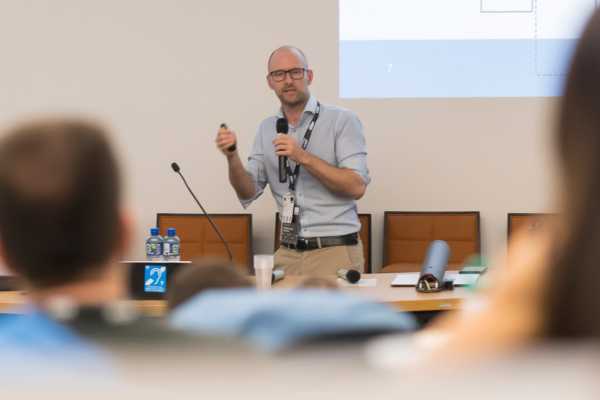
Thessaloniki, Greece
Process Tracing Methods
When:
26 August - 29 August 2025
Credits:
4 EC
Read more
Social Sciences Summer Course
When:
23 July - 24 July 2025
School:
GESIS Summer School in Survey Methodology
Institution:
GESIS-Leibniz Institute for the Social Sciences
City:
Country:
Language:
English
Credits:
0 EC
Fee:
220 EUR

The course will give a thorough introduction to the software Stata. It is tailored to the needs of academics and other research practitioners who are new to Stata or wish to refresh their skills. The course will not cover basic statistical methods and their underlying mathematics but will focus on their practical application using data in Stata.
In the first part of the course, we will cover the program's interface and introduce its syntax structure and basic rules for writing clean and reproducible Stata code. Subsequently, we aim to enhance the participants’ skills in hands-on data management, common data analyses, and the visualization of results. Depending on the participants' prior knowledge, we might provide further insight into automating data wrangling and analysis procedures and exporting publication-ready results. Additionally, we will review available help and support features (online and offline) to equip participants with the necessary knowledge to develop their skills further and solve occurring problems. This course will be interactive and case-based in nature
Lynn-Malou Lutz and Lisa Jäckel, GESIS - Leibniz Institute for the Social Sciences
You will find the course useful if:
- you are new to statistical computing (with Stata),
- you are familiar with other statistical software but want to get to know Stata,
- you have already worked with Stata before but want to refresh basic knowledge
By the end of the course, you will:
- be familiar with Stata's interface and facilities,
- understand how to integrate Stata into your research process to create reproducible and publication-ready results,
- know how to solve common data management problems in Stata and how to document all modifications of the data,
- be able to perform typical descriptive and inferential statistical procedures and use graphs to communicate your results effectively,
- know how to proceed from here and get additional support if needed
Fee
220 EUR, Student/PhD student rate
Fee
330 EUR, Academic/non-profit rate
The rates include the tuition fee, course materials, the academic program, social and plenary program, and coffee/tea breaks
When:
23 July - 24 July 2025
School:
GESIS Summer School in Survey Methodology
Institution:
GESIS-Leibniz Institute for the Social Sciences
Language:
English
Credits:
0 EC

Thessaloniki, Greece
When:
26 August - 29 August 2025
Credits:
4 EC
Read more

Utrecht, Netherlands
When:
11 August - 21 August 2025
Credits:
4 EC
Read more

Copenhagen, Denmark
When:
28 July - 21 August 2025
Credits:
7.5 EC
Read more